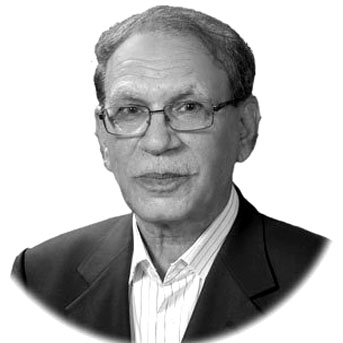Mohammad Jamil
APPLICATION of existing free market economic theory has always been an incredibly confounding cliché. The US believes in free market mechanism, but various governments resorted to protectionist policies. In the 1980s, the Reagan Administration’s efforts to protect American businesses from market discipline were unprecedented. For example, 100% tariff on select Japanese electronics was imposed to enforce ‘the principles of free and fair trade,’ as claimed by the then President Reagan. President Barack Obama had also believed and made his intent known that protectionism was effective. Of course, when his Administration’s market interventions saved thousands of union jobs during the financial bailouts of General Motors and Chrysler in 2009, American media commentators eagerly termed them ‘free market infringements’ and ‘giveaways’ to undeserving corporations and the unions. Present Donald Trump has also adopted similar policy whereby he increased tariff on imports from China and started a trade war.
In Pakistan, then Prime Minister Shaukat Aziz and SBP governor Sheikh Ishrat Hussain believed that by lowering interest rates consumption will increase, which will prove as an engine of growth. But it was a flawed policy and not practicable in developing countries though it may be workable in the developed countries. Investment, indeed, is a major determinant of economic growth which generates employment and helps alleviate poverty. But the problem is that with rising prices the incomes of a great majority of people have eroded; hence no savings. The trade and fiscal deficits are widening yet the governments did not have time to address these issues which require an immediate attention and focus. Precarious current account deficit and declining forex reserves has been the feature of Pakistan economy. Many a time, forex reserves were not enough to meet import requirements for three month and governments had to approach the IMF for the bailout.
Another cliché is that stock market is the indicator of the economy’s health. In Pakistan, stock market presents a dismal picture whereby a handful of speculators with the connivance of financial institutions had been denying financial facility to the small investors while the major players were readily obliged at lower mark-up especially when the PML-N government in the 1990s and later in 2013 had reduced the interest rate for the benefit of big players. Whenever there was stock market boom, there were fears of doom because investors in general lose their hard earned money. Small investors suffered in 1997 when Nawaz Government started reducing SPB bank discount rate and also rate of profit on National Savings Schemes. People who looked for better return were duped by joint stock companies and scores of Modaraba Companies. Reducing rate of interest on loans to the rich is tantamount to subsidizing the rich.
During Mushrraf era, Shaukat Aziz was ‘chief patron’ of stock brokers, speculators and manipulators when millionaire brokers became billionaire. But every time script was the same. In 2007, the nation had witnessed KSE-100 Index jumping from 5000 points to 11000 points within weeks and then plummeting to 7500 points within days. The share market of Pakistan is unpredictable as compared with bourses of other countries, and its mechanism incomprehensible with the result that steep rise and fall in price structure of scrips does not come within the ambit of logical reasoning. The problem is that majority of the Companies resort to tax evasion by manipulating their accounts – by omitting some purchases or inputs and then hiding sales. Against this backdrop, their financial statements do not represent the correct position of profit; thus shareholders are duped, whereas the wealth of the Directors of the Companies multiplies.
If one examines the financial statements of the companies listed on the Stock Exchange, it is not difficult to conclude that market value of the shares has no relevance to the book value or realistic value of the shares. As a matter of fact, the substantial increase in price of shares is possible only when the Company registers impressive figure of profit; otherwise substantial increase or decrease in the value of shares is not possible. All previous governments were to blame because for one they could not regulate the companies giving a rough deal to the shareholders. Secondly they took credit for increase in shares’ prices stating it was an indication about good health of the economy. Almost every government encouraged the National Investment Trust and government pension funds to invest in stock market, thus causing losses to the people.
The situation at present is that Pakistan’s economy is in a shambles because of the flawed policies of various governments in the past. In Pakistan with stagnant economy and Foreign Direct Investment coming either in the form of portfolio investment or in privatization process, new industries were not coming up to increase production, which could keep general price level in check to save the common man from the effects of runaway inflation. In the past, the governments got the foreign debts rescheduled; but it should be borne in mind that loans have to be repaid to the creditors. And if the debts are rescheduled, the future governments have to provide for debt-servicing at a later date, which means that the next generation would have to bear the brunt of higher taxes. The present government is trying to bring about structural changes in the economy, and it is to be seen how far it succeeds in overcoming the crisis.
—The writer is a senior journalist based in Lahore.









